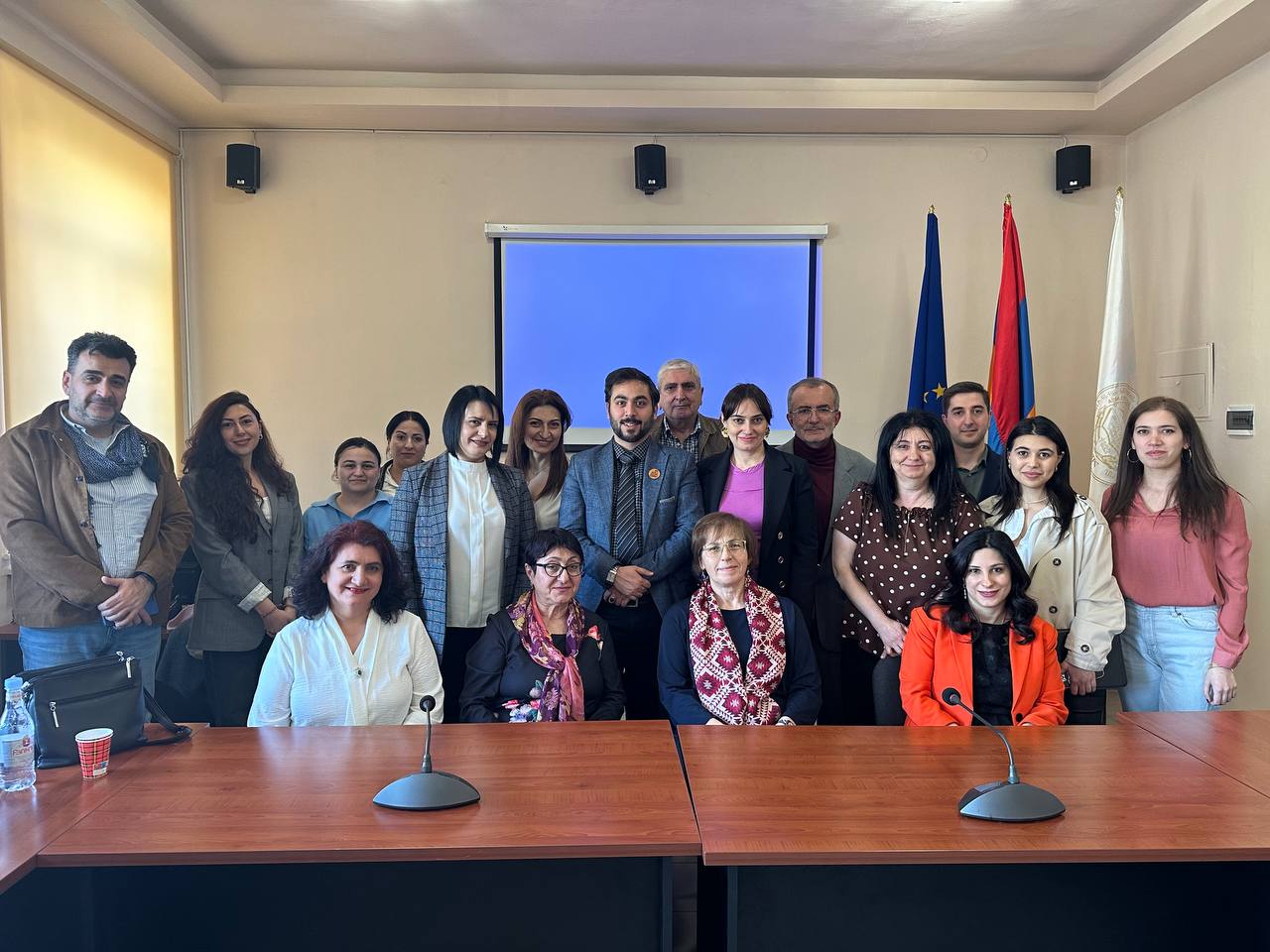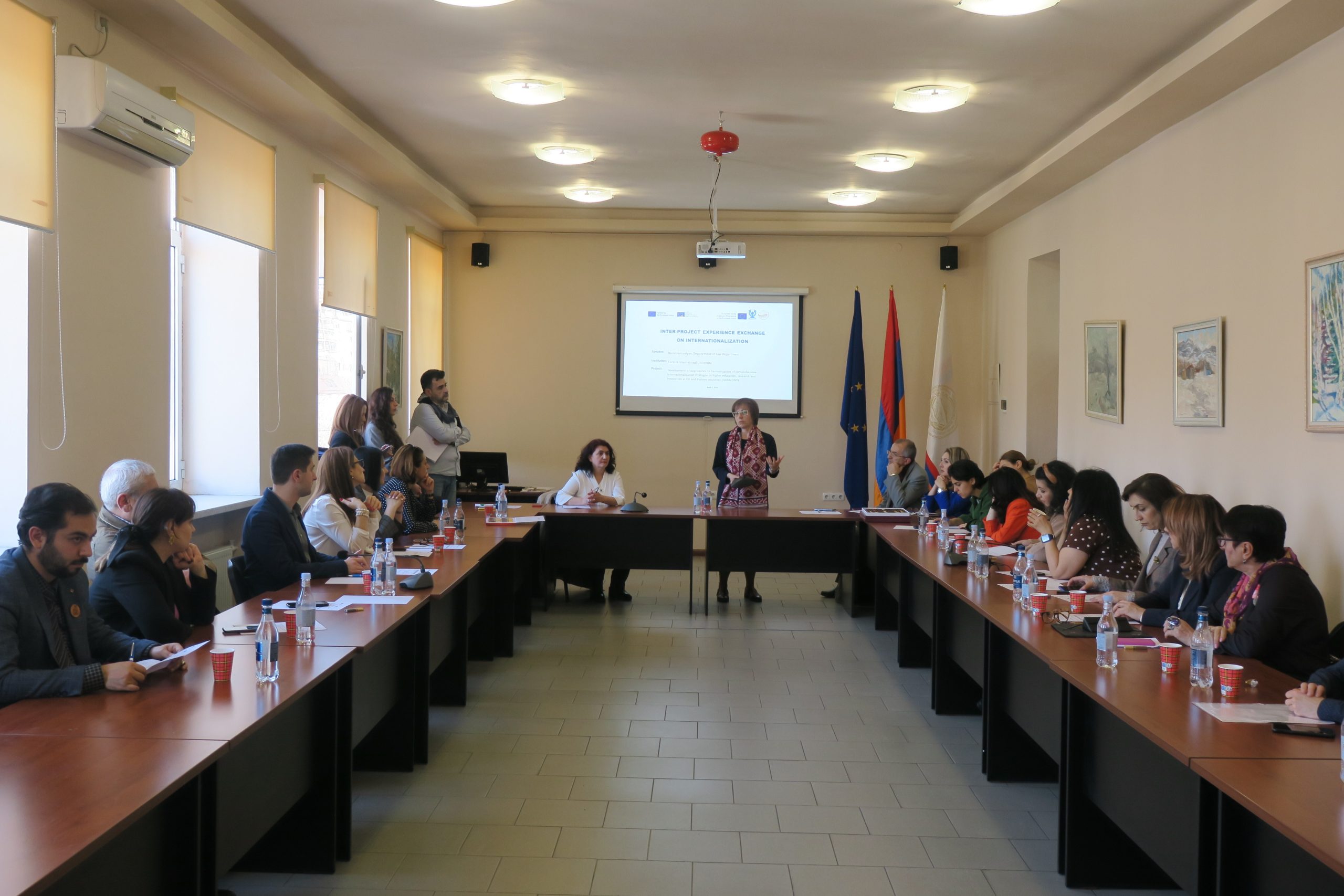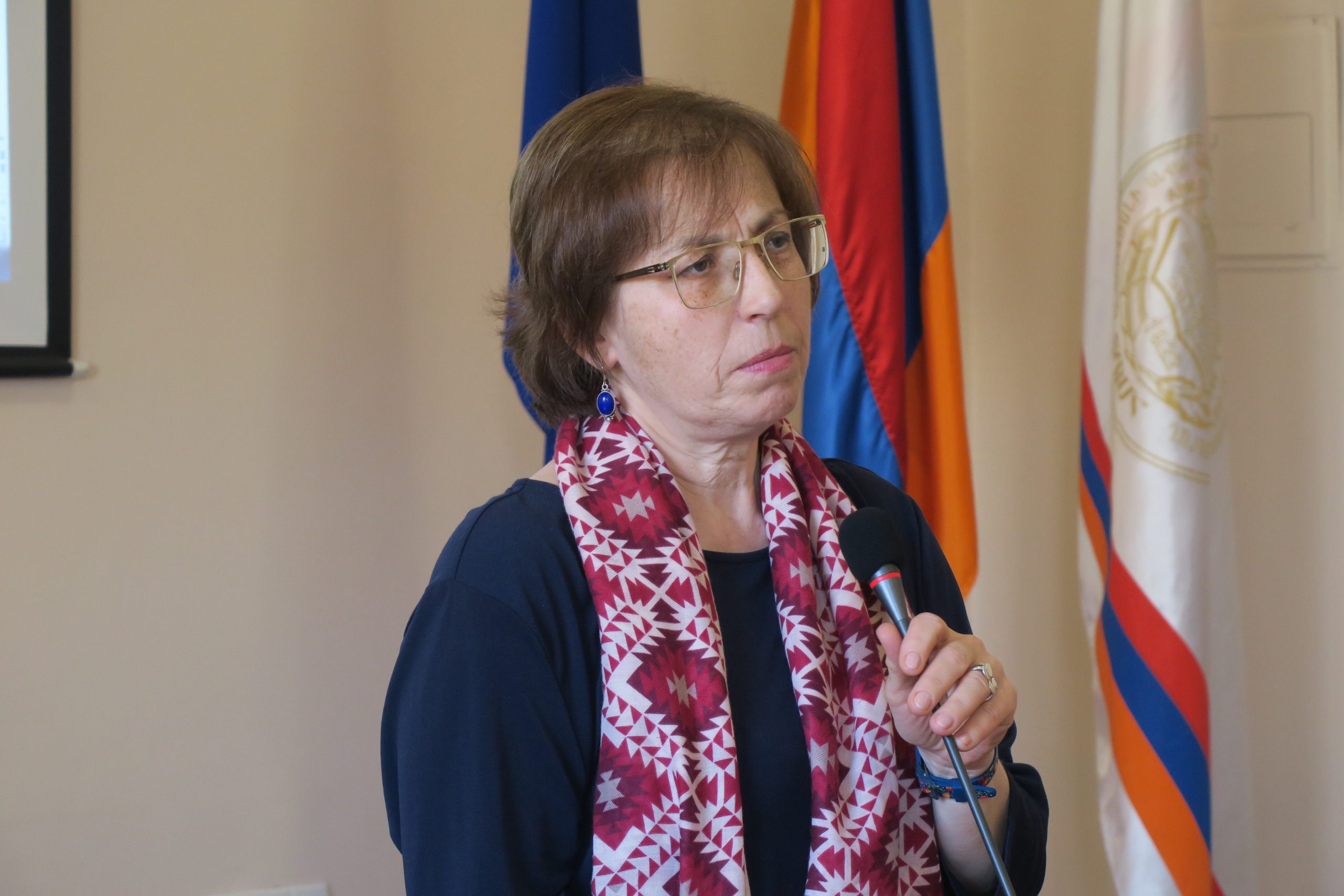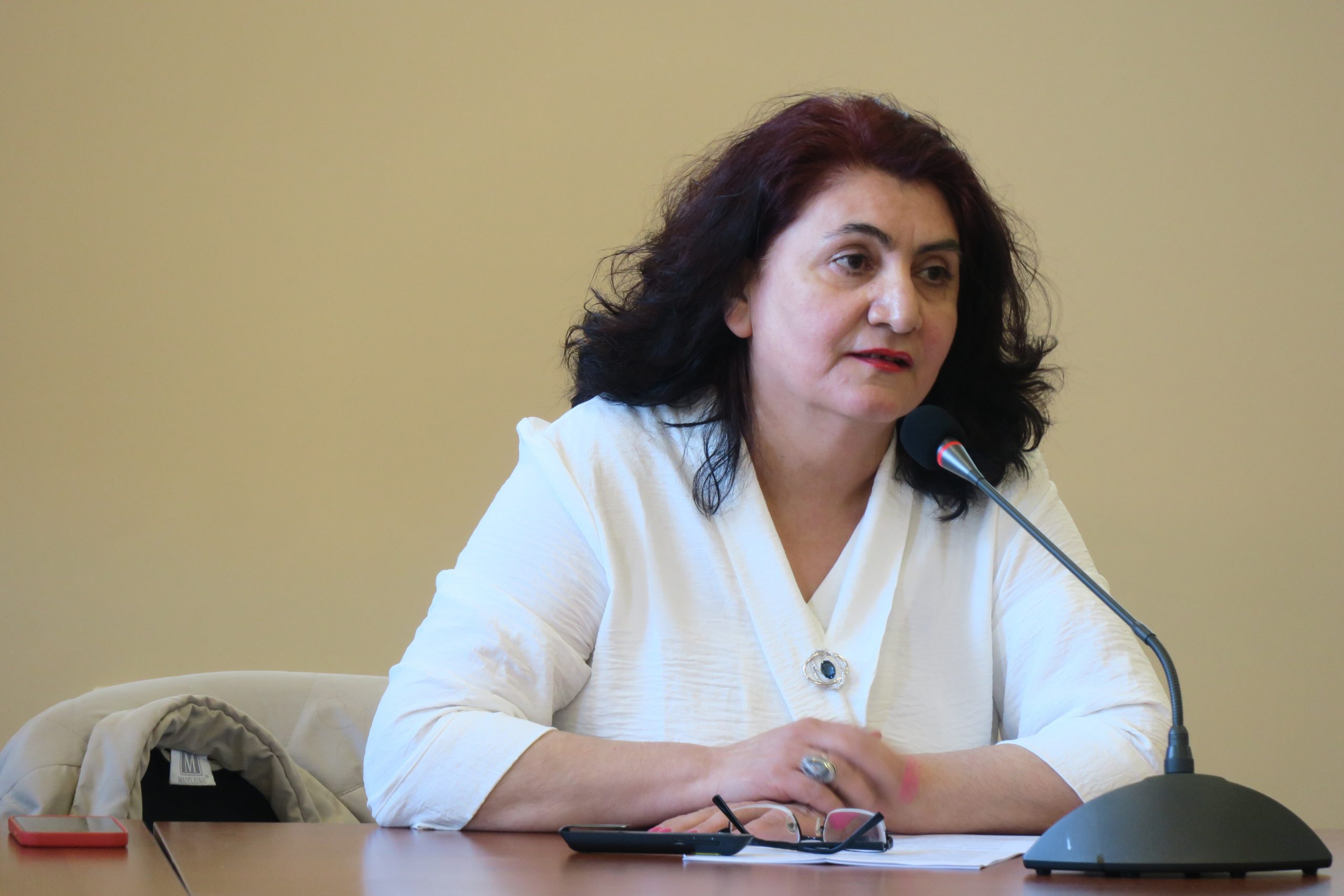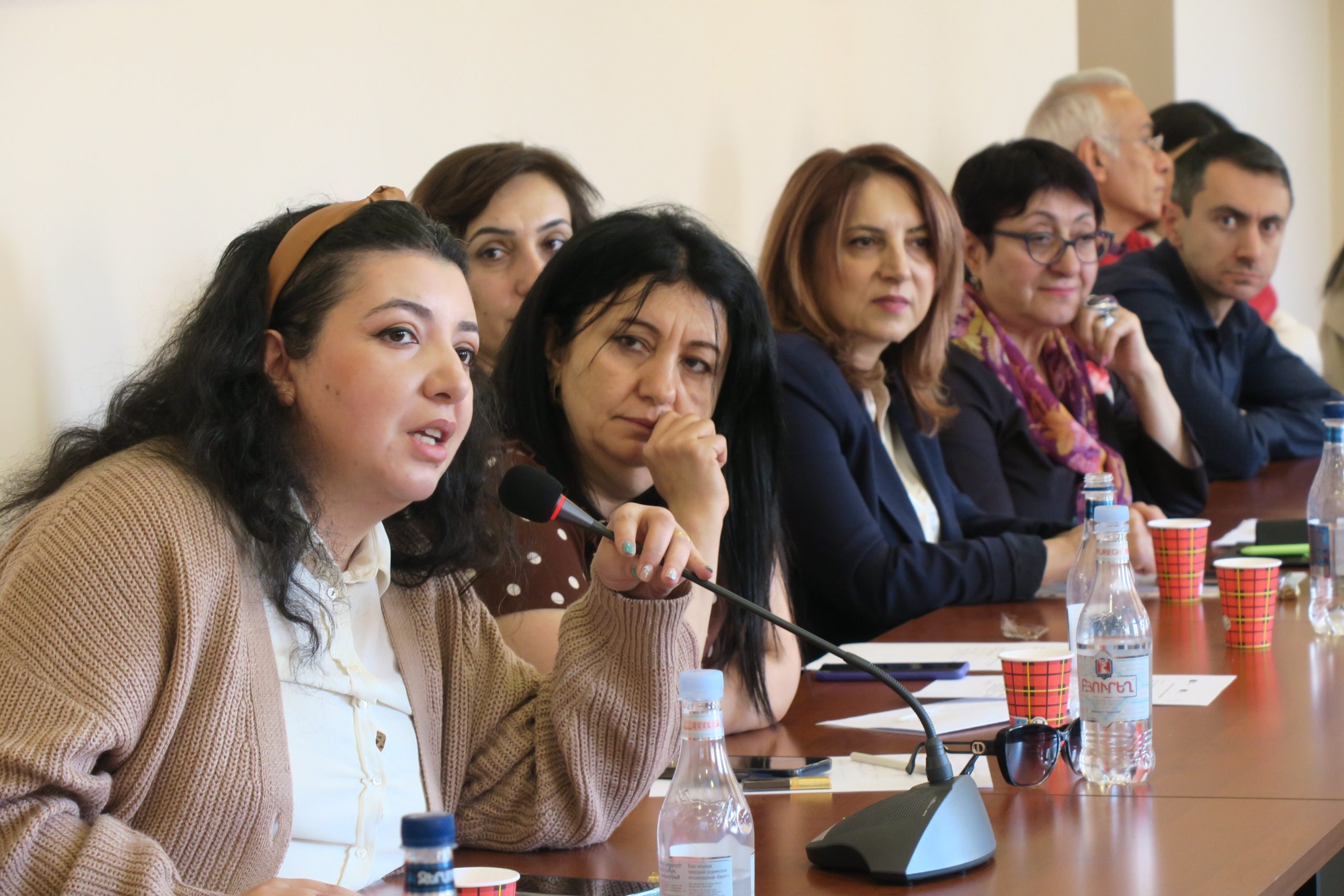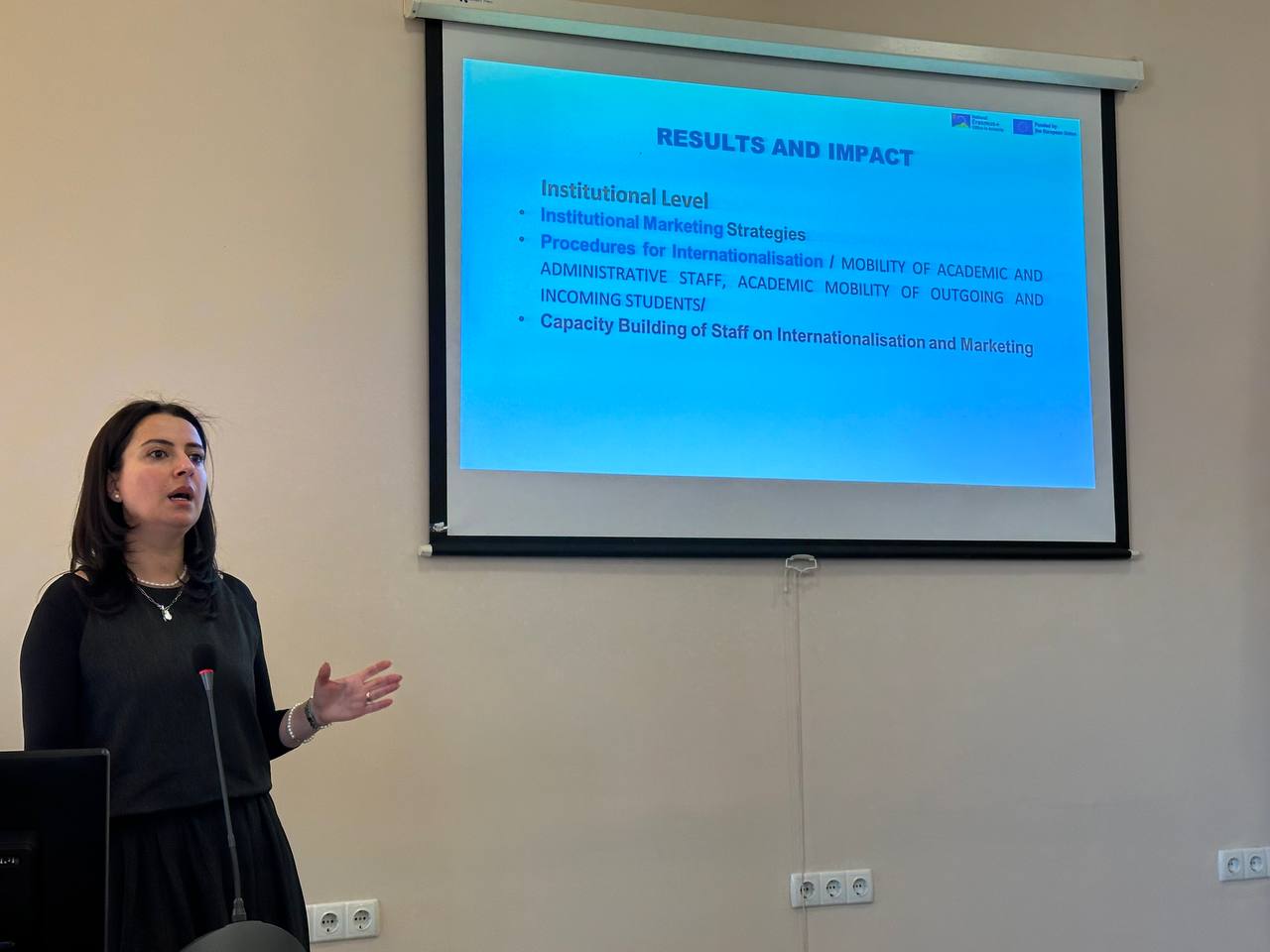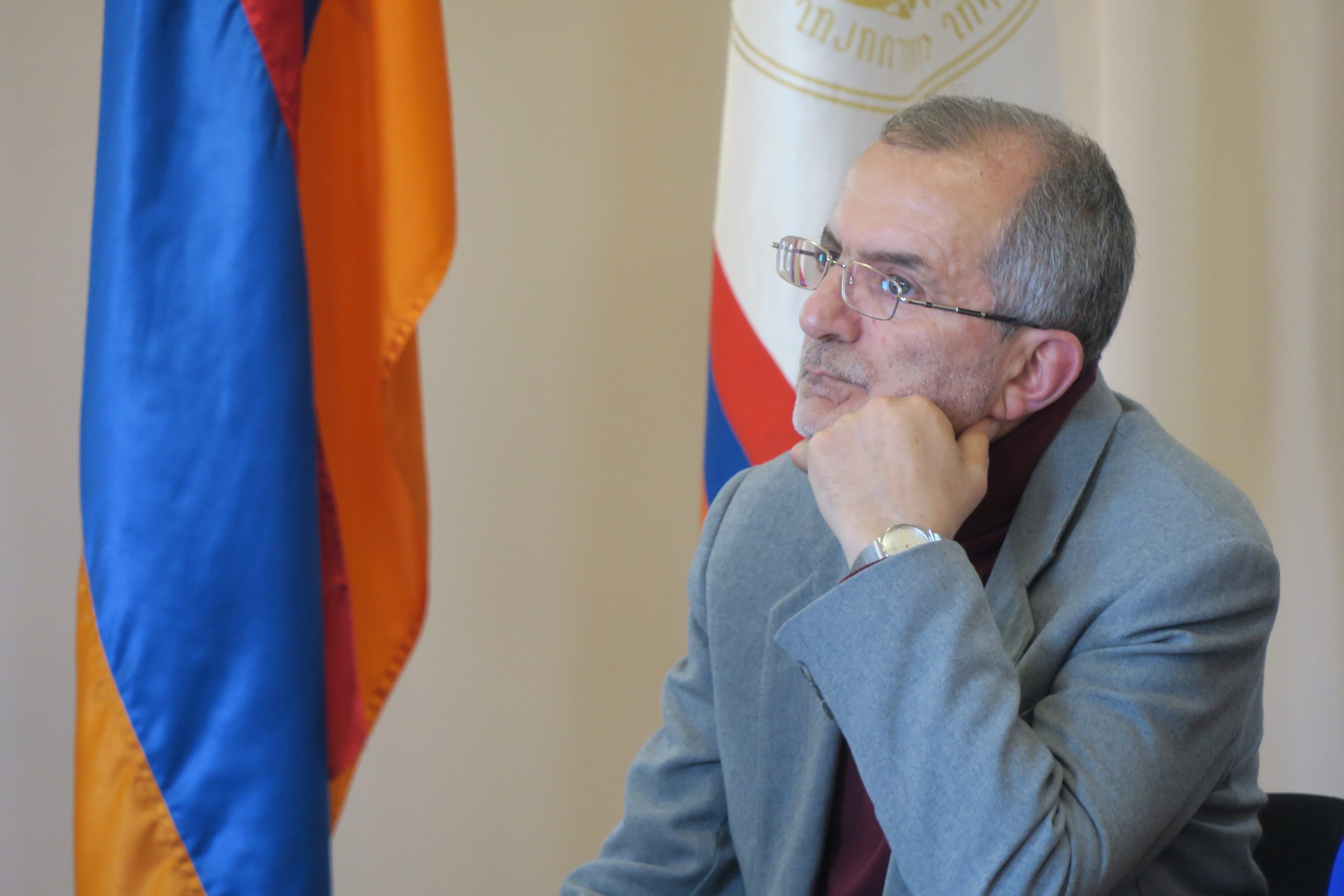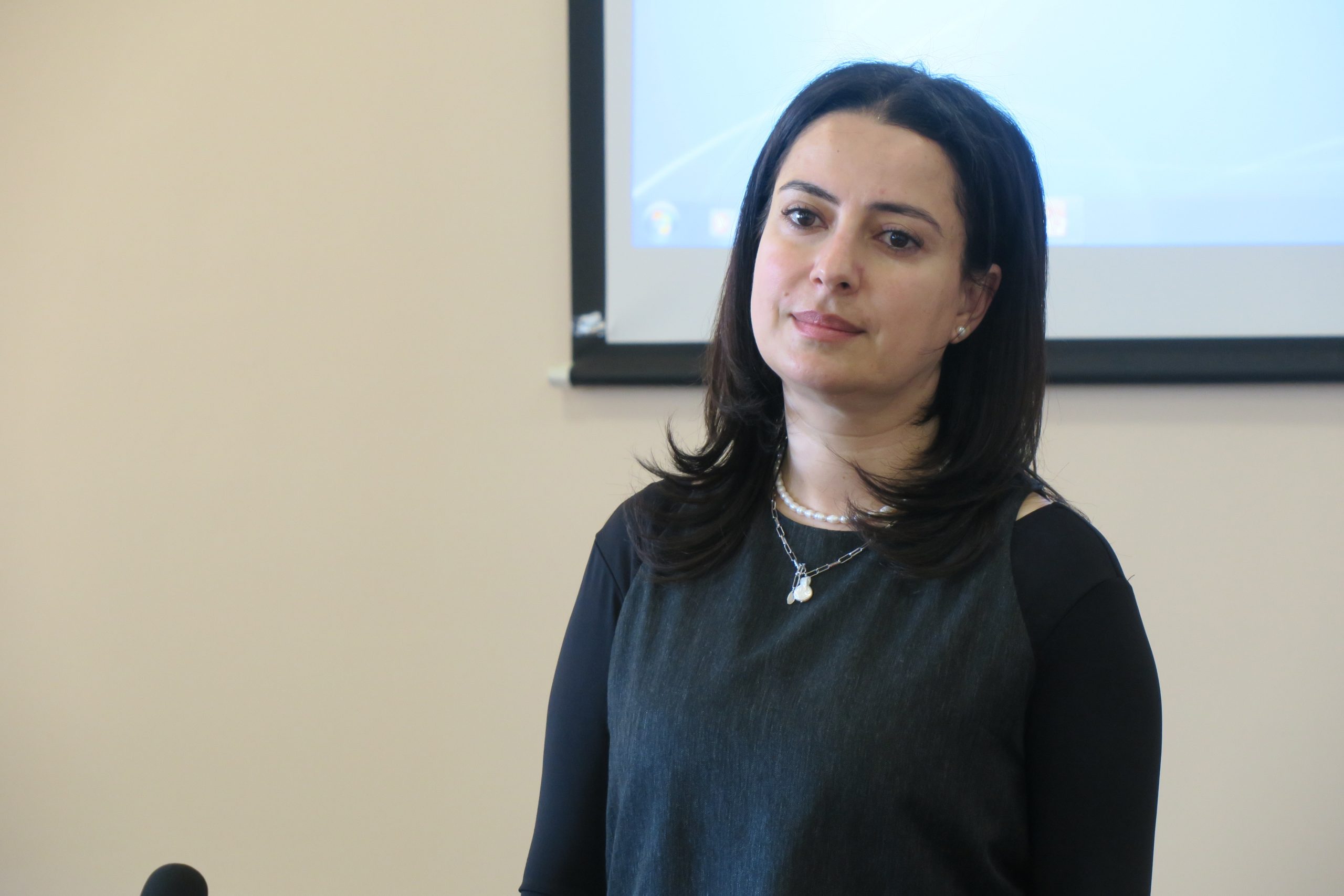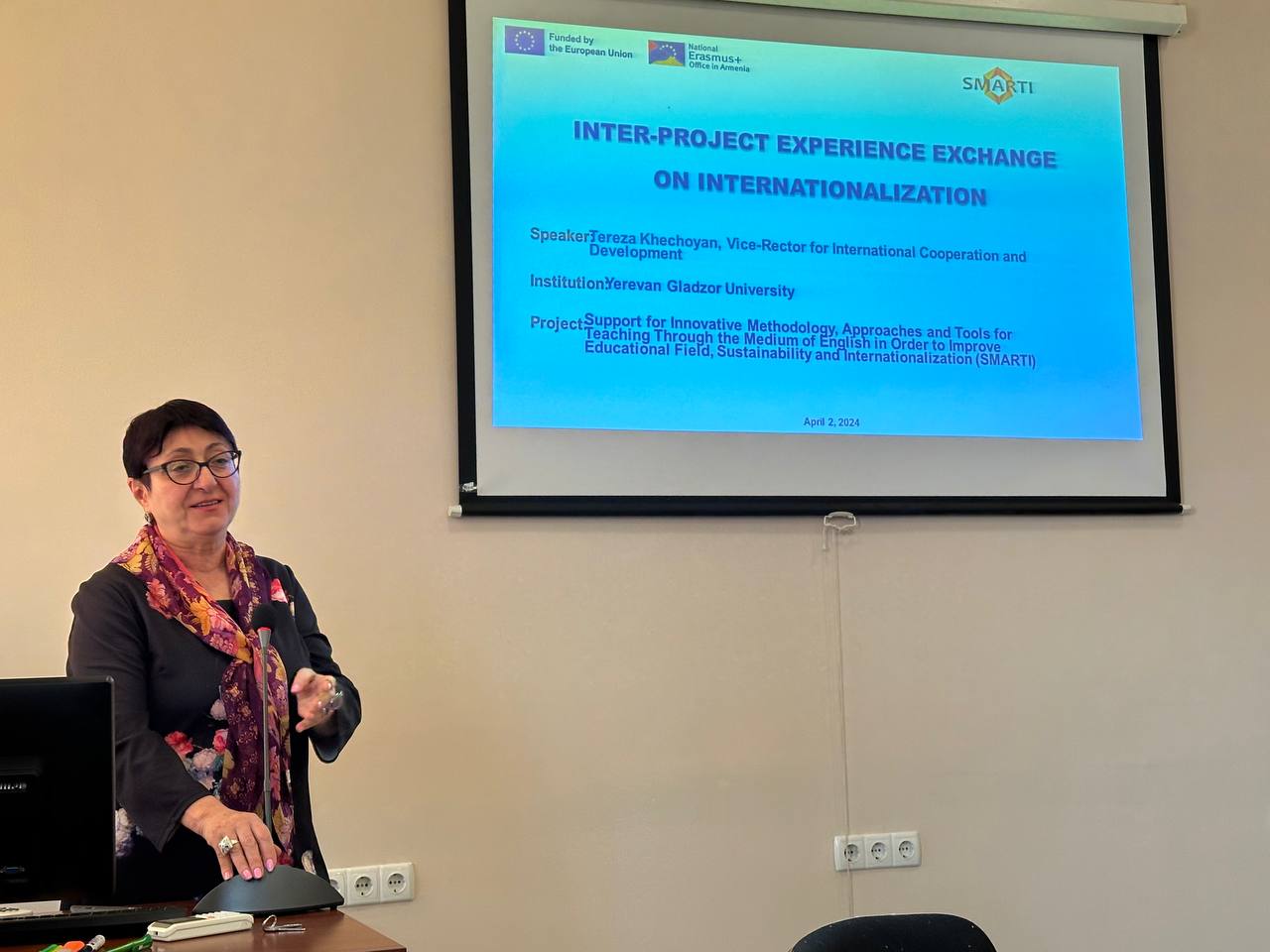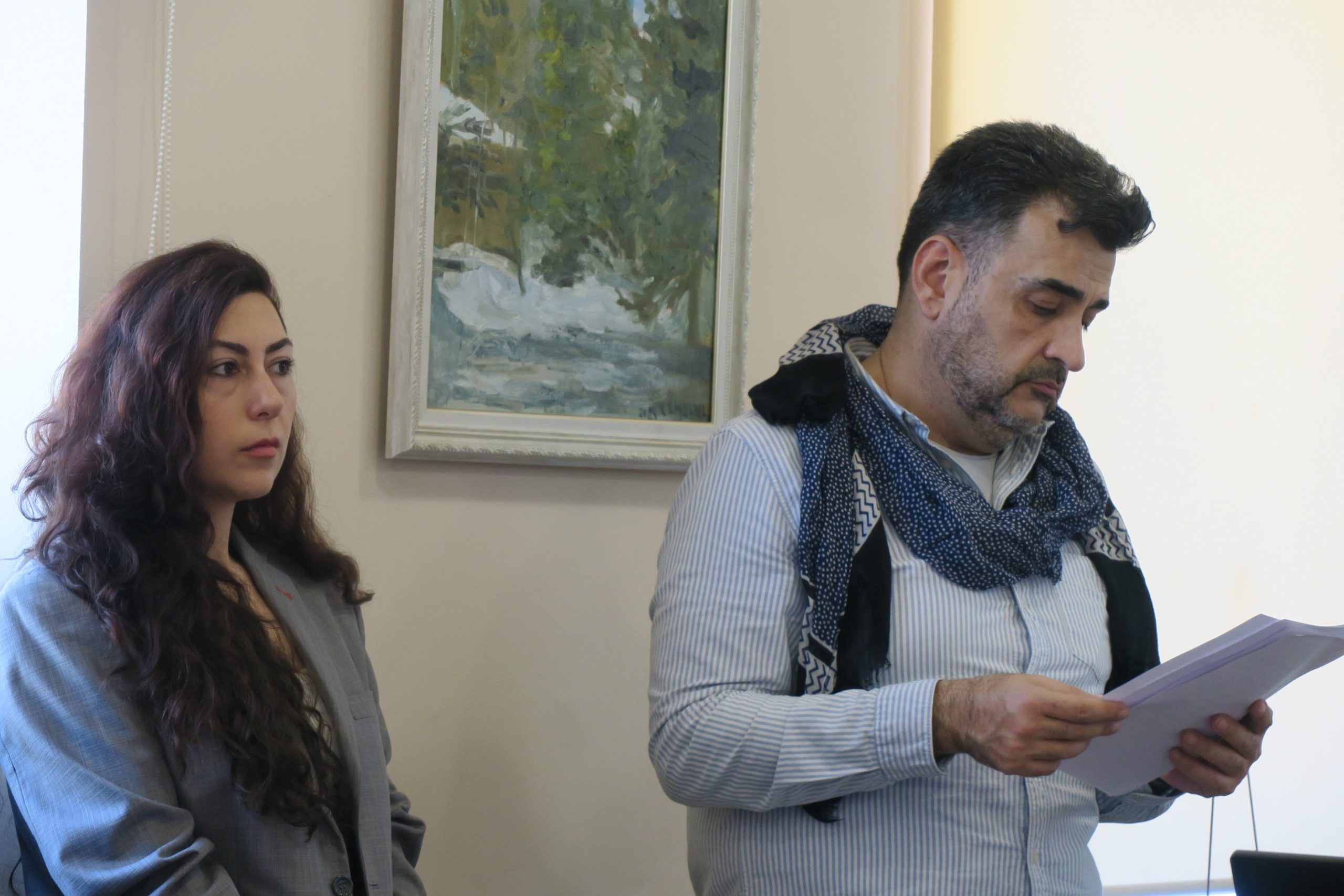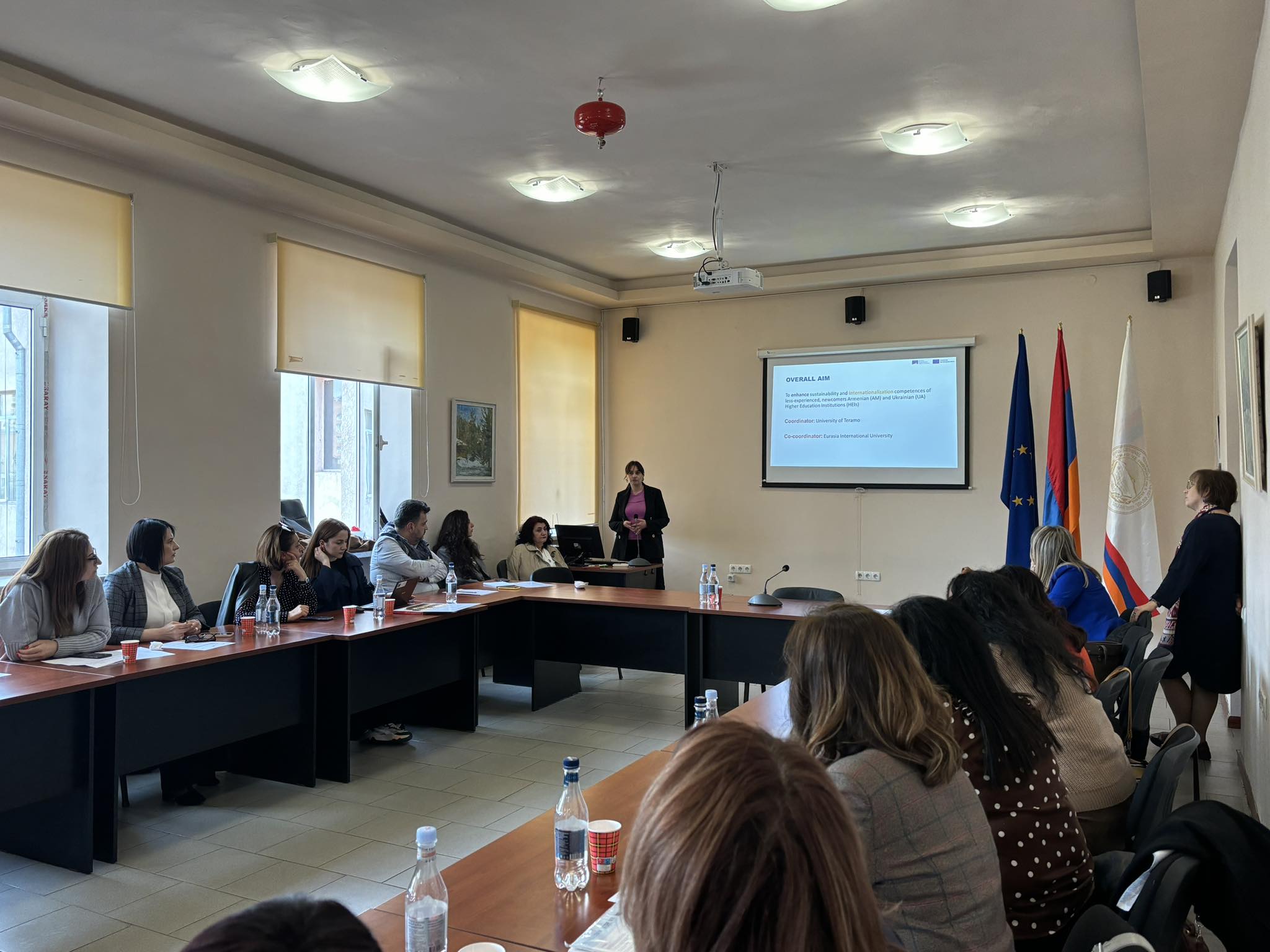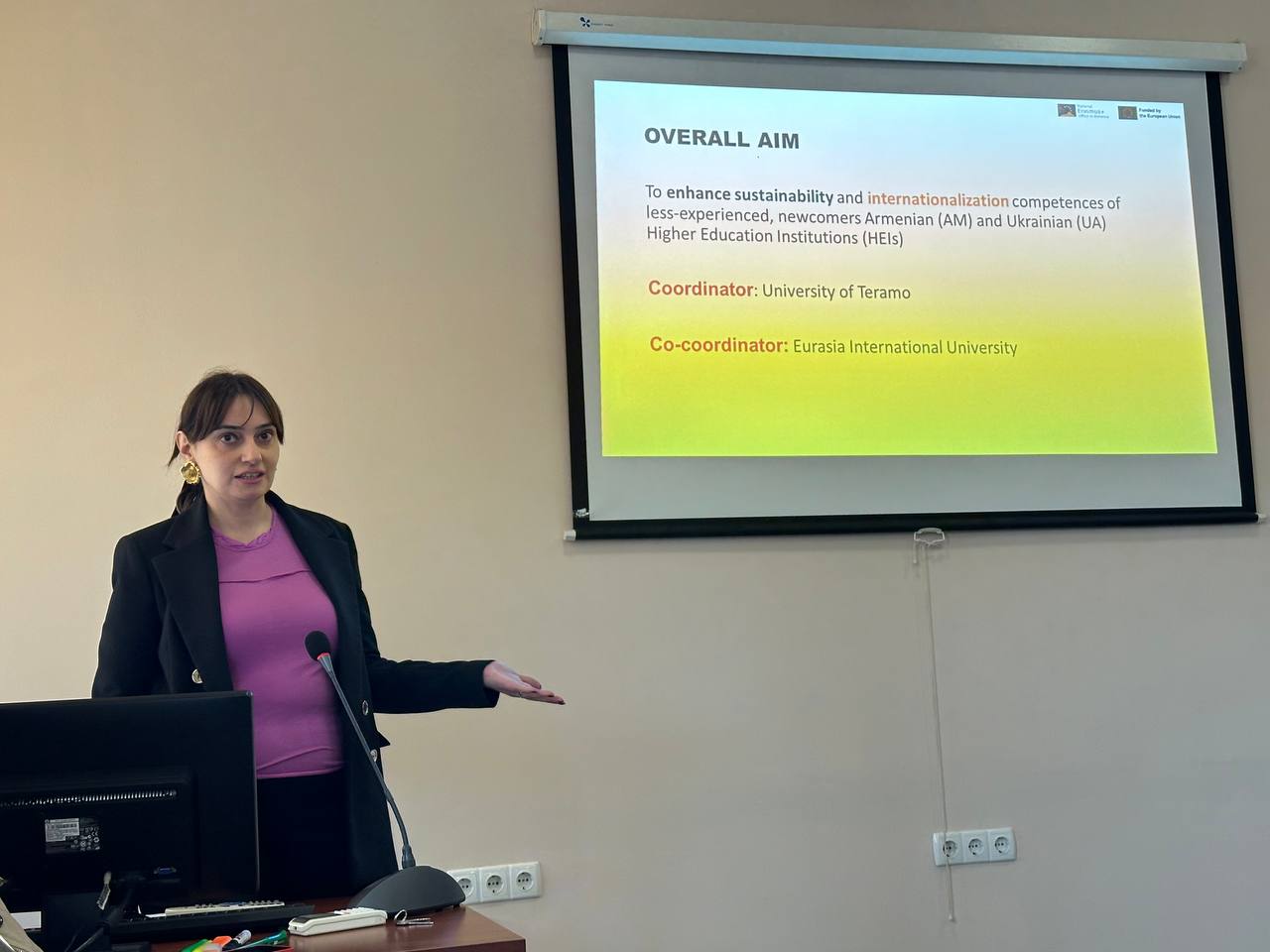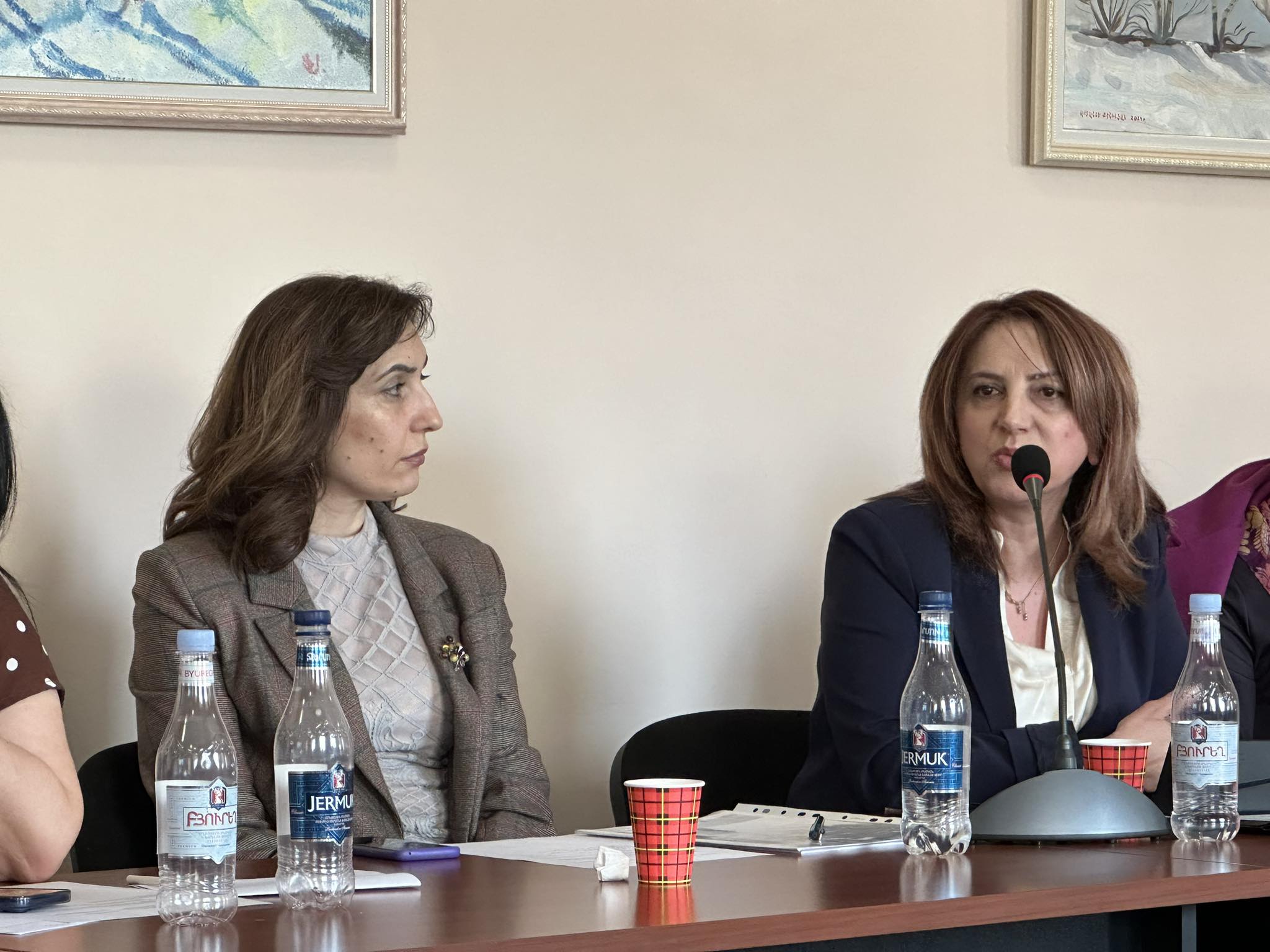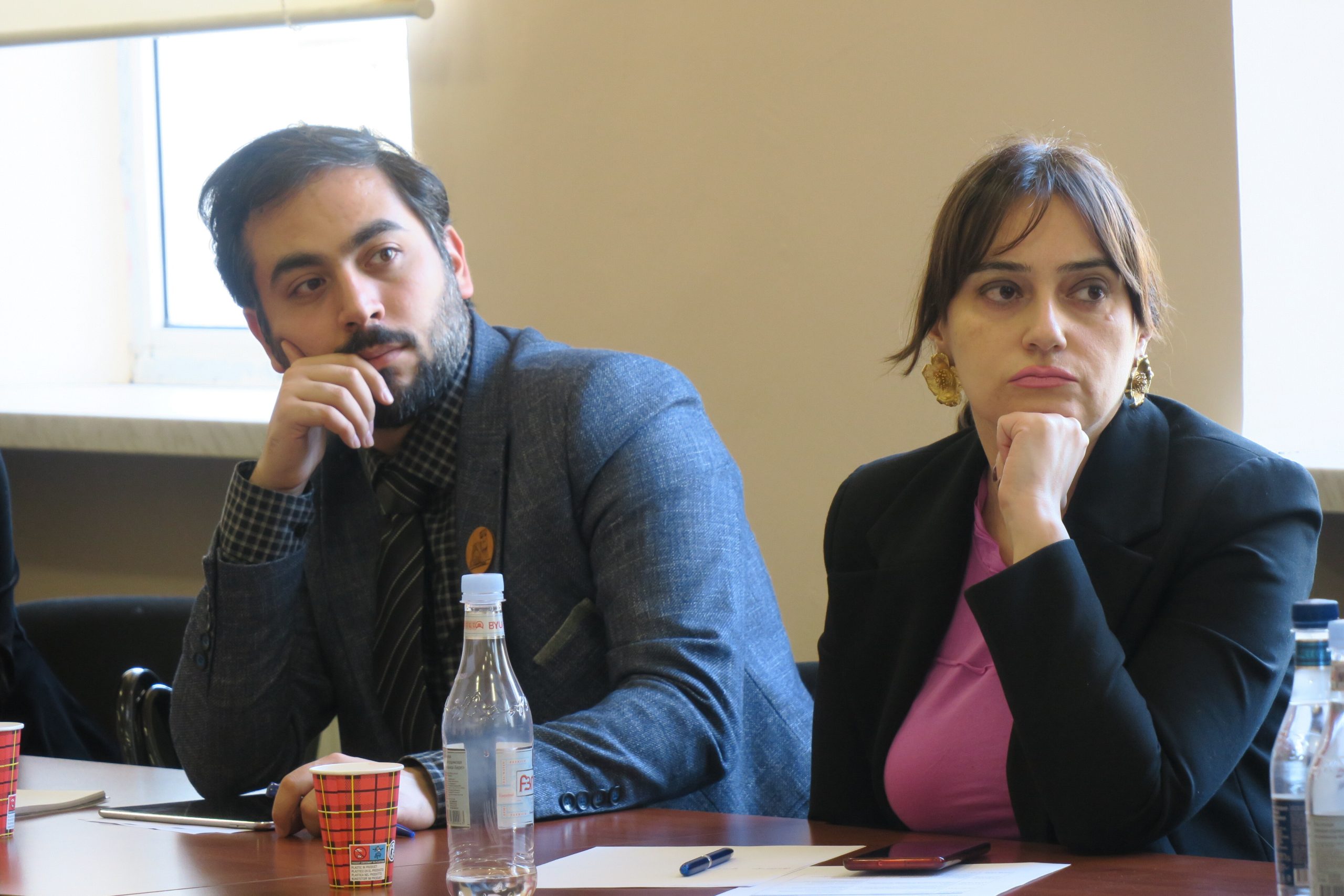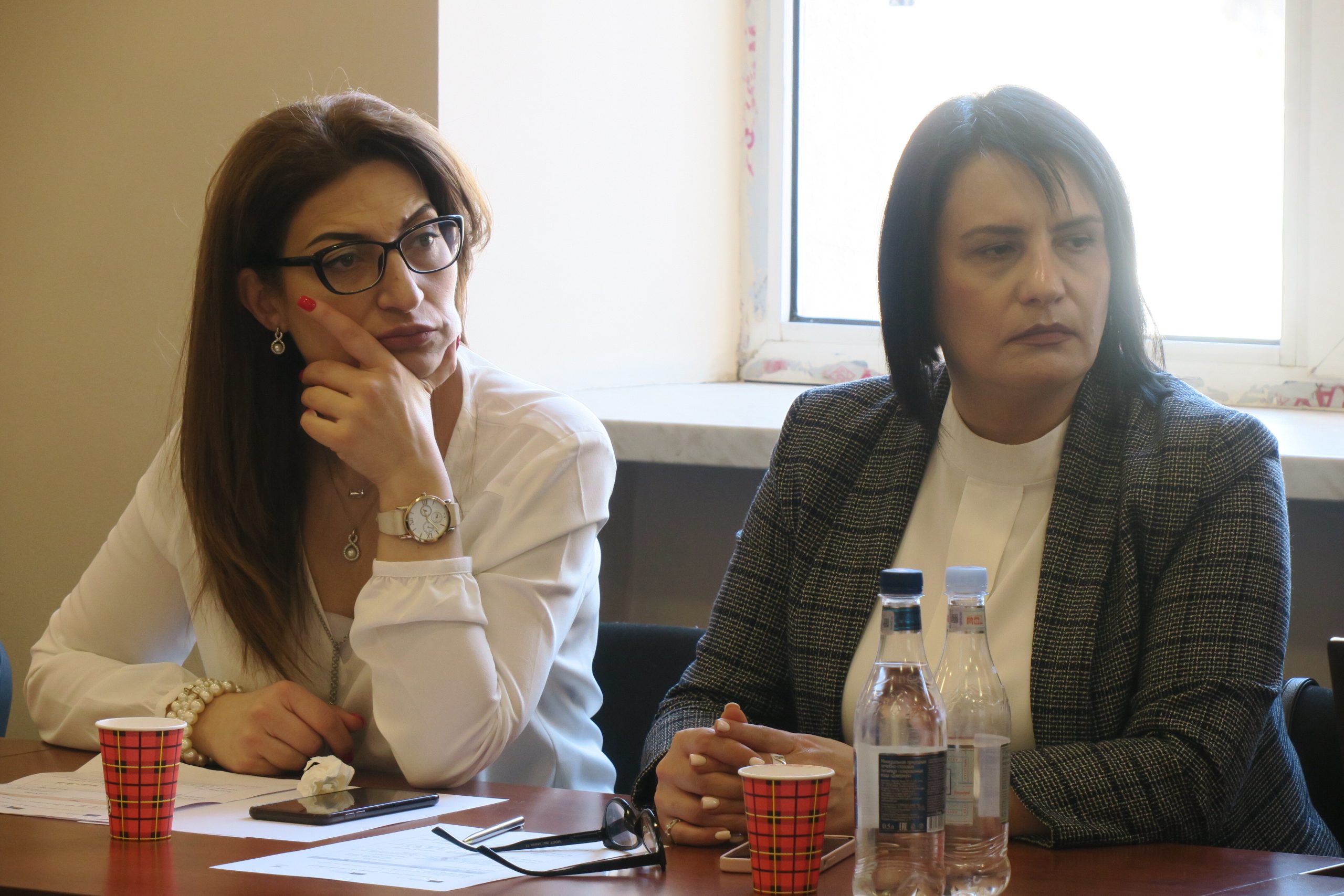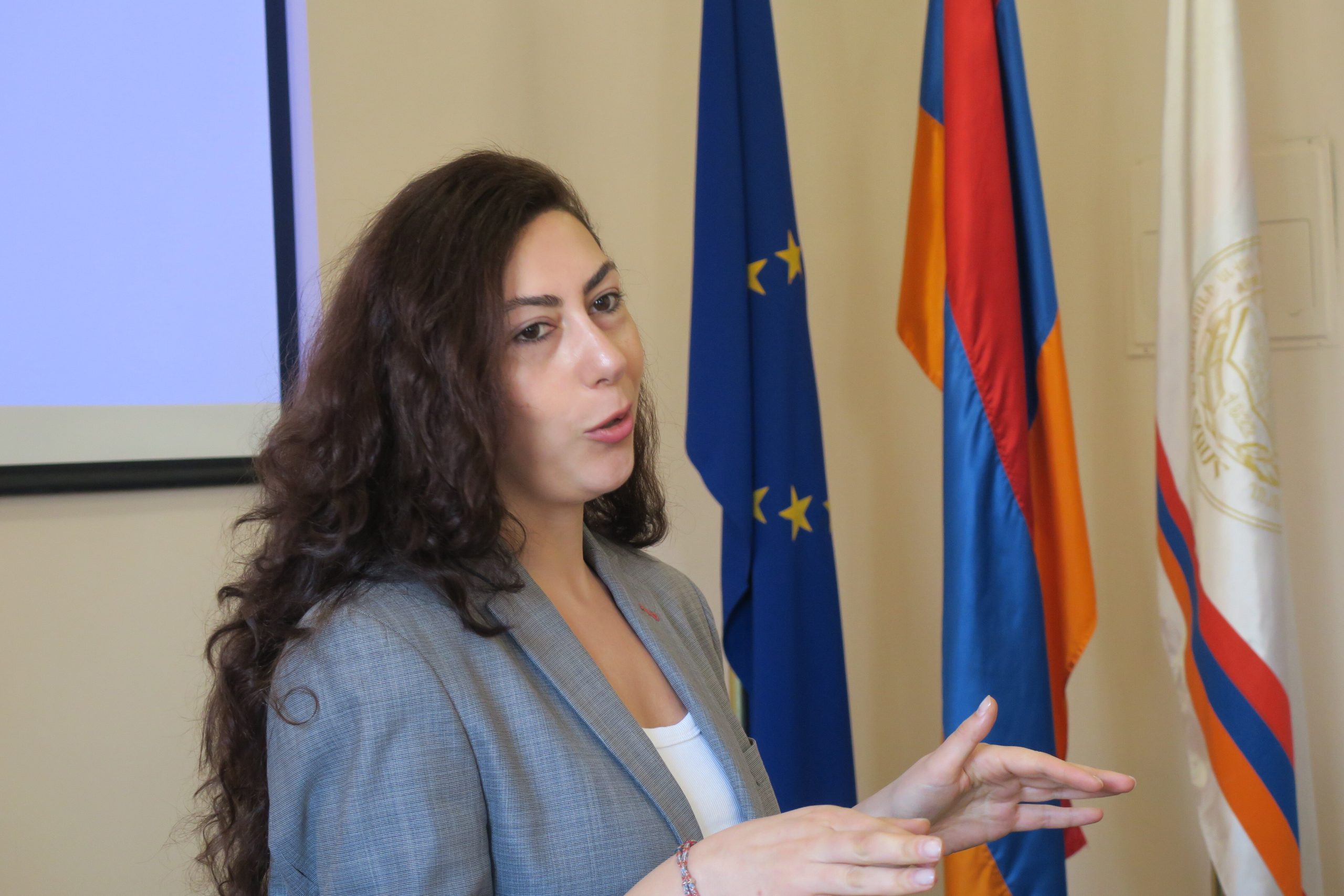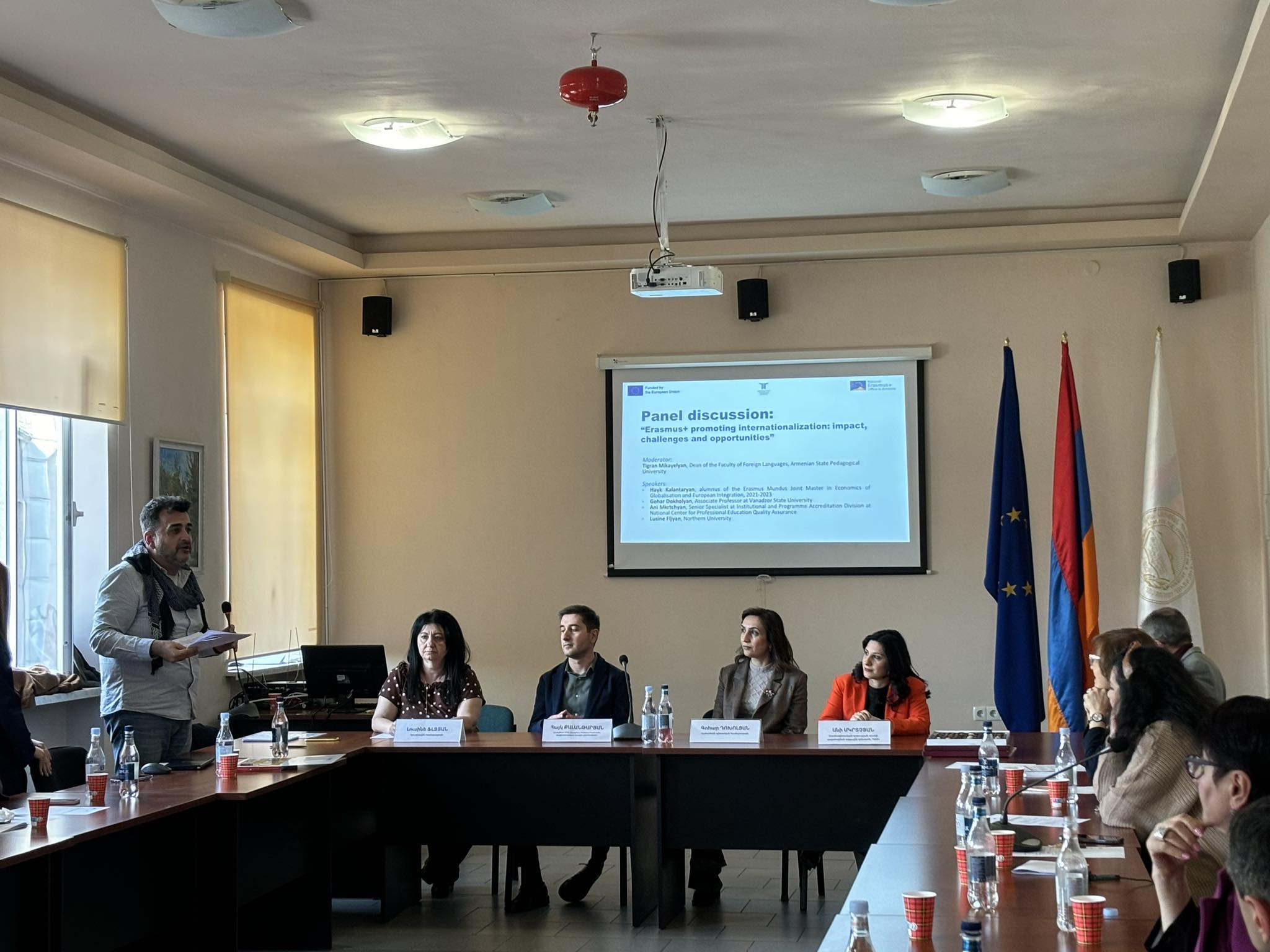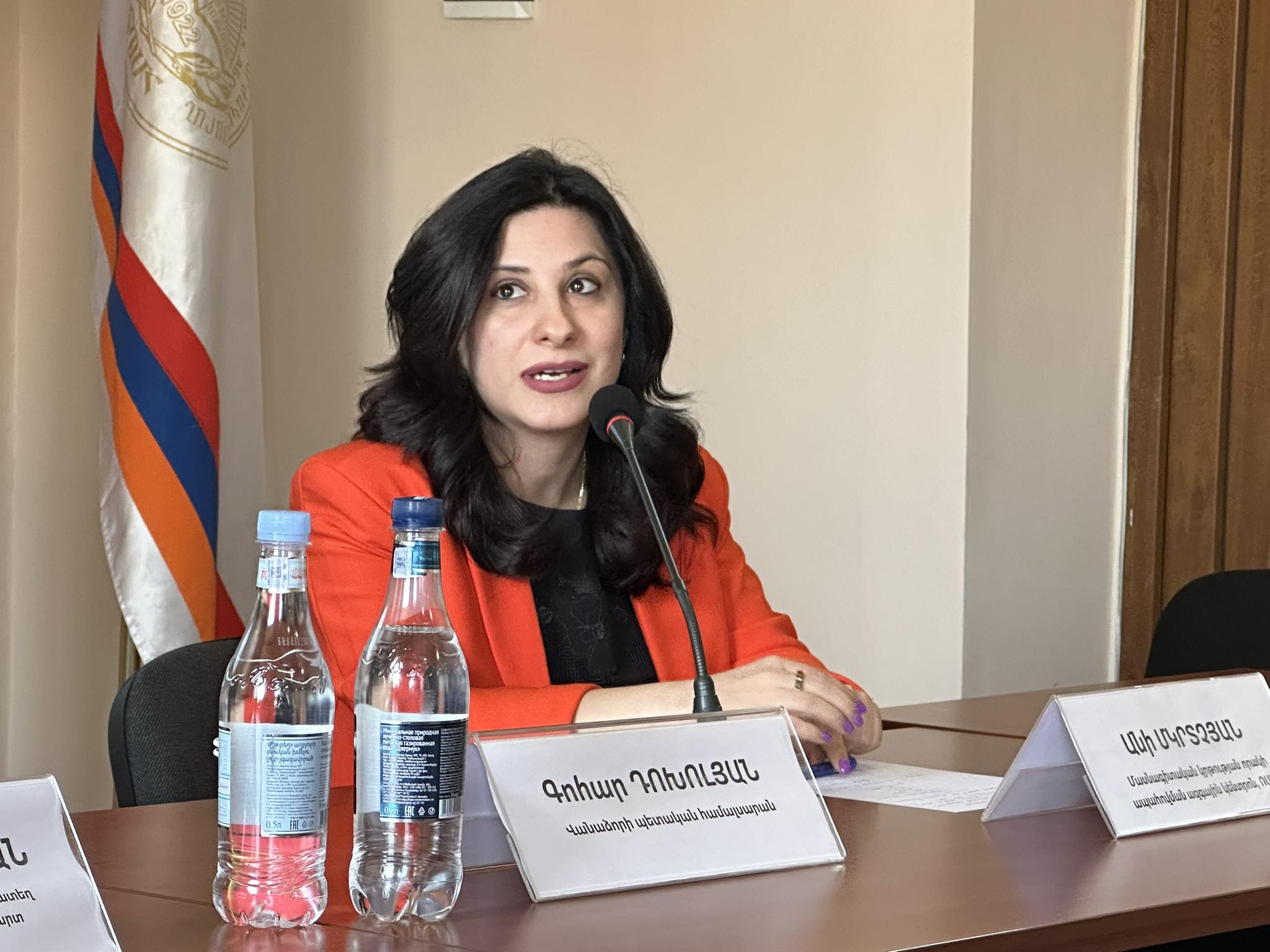Meeting on “Inter-project experience exchange on internationalization” took place
On April 2, “Inter-project experience exchange on internationalization” took place at Armenian State Pedagogical University. The purpose of the meeting was to share the following aspects of completed and ongoing projects within the framework of the Erasmus+ “Capacity building in Higher Education” Action:
– steps and success stories on internationalization, sustainability and continuity,
– issues and challenges that arose during the implementation of the projects, as well as the suggestions on how to overcome them,
– important tips and skill set that need to be taken into account in the process of developing and implementing projects in the future.
The meeting started off with the welcoming speech from Lana Karlova, Coordinator of National Erasmus+ Office in Armenia. Afterwards, Nune Jomardyan (Deputy Head of the Department of Law, Eurasia International University) introduced “HARMONY: Development of approaches to harmonization of comprehensive internationalization strategies in higher education, research and innovation at EU and Partner countries” project. She mentioned that as a result of the project, Internationalization Strategy was developed, ratified and implemented, as well as Full Credit Recognition Policy and Student Recruitment Strategy were adopted.
Afterwards, Marianna Harutyunyan (Vice-rector for HR and International Relations, Armenian State Pedagogical University) talked about the results and challenges of “BOOST: Boosting Armenian universities internationalization strategy & marketing” project. As a result of this project, a National Platform and online tools for mapping and benchmarking internationalization processes in higher education in Armenia were developed.
Then, Tereza Khechoyan (Vice-rector, Yerevan “Gladzor” Management University) elaborated on the results of “SMARTI: Support for innovative methodology, approaches and tools for teaching through the medium of English in order to improve educational field, sustainability and internationalization” project. Due to this project, a comprehensive pedagogical 10-Module English as a Medium of Instruction (EMI) curricula was developed and implemented.
The last speaker Anna Martirosyan (Head of Management and IT Chair, Eurasia International University) presented the results of “SIN-NEC: Sustainability and internationalization capacities to promote modernisation of newcomers higher education in Neighbourhood East Countries” project. As part of this project, self-assessment tools and strategies on internationalization and training activities are being implemented.
In the second part of the meeting, a panel discussion on “Erasmus+ promoting internationalization: impact, challenges and opportunities” moderated by Tigran Mikayelyan (Higher Education Reform Expert; Dean of the Faculty of Foreign Languages, Armenian State Pedagogical University) took place. The panelists were Lusine Fljyan (Vice Rector, Yerevan “Northern” University), Hayk Kalantaryan (alumnus of Erasmus Mundus Joint Master in Economics of Globalisation and European Integration, 2021-2023), Gohar Dokholyan (Associate Professor, Vanadzor State University) and Ani Mkrtchyan (Senior Specialist at Institutional and Programme Accreditation Division at National Center for Professional Education Quality Assurance). Some of the highlights related to the discussion were:
- role of Bologna Process on the internationalization of higher education system in Armenia,
- quality assurance mechanisms in ensuring the effectiveness and sustainability of Erasmus+ initiatives,
- academic, cultural and professional benefits as well as challenges of participation in Erasmus Mundus Joint Master Degree programs,
- alignment of policy implications of Erasmus+ projects with national priorities, as well as strategies for maximizing the impact of EU funding, etc.
As such, the meeting has provided a valuable platform for sharing insights, challenges, and best practices in advancing internationalization efforts within Armenian higher education. Through engaging discussions and contributions from diverse stakeholders, including international relations officers, professors, alumni, faculty members and accreditation experts, participants gained a deeper understanding of the multifaceted impacts, opportunities, and complexities associated with internationalization initiatives.
Photos, presentations and agenda are available below.

